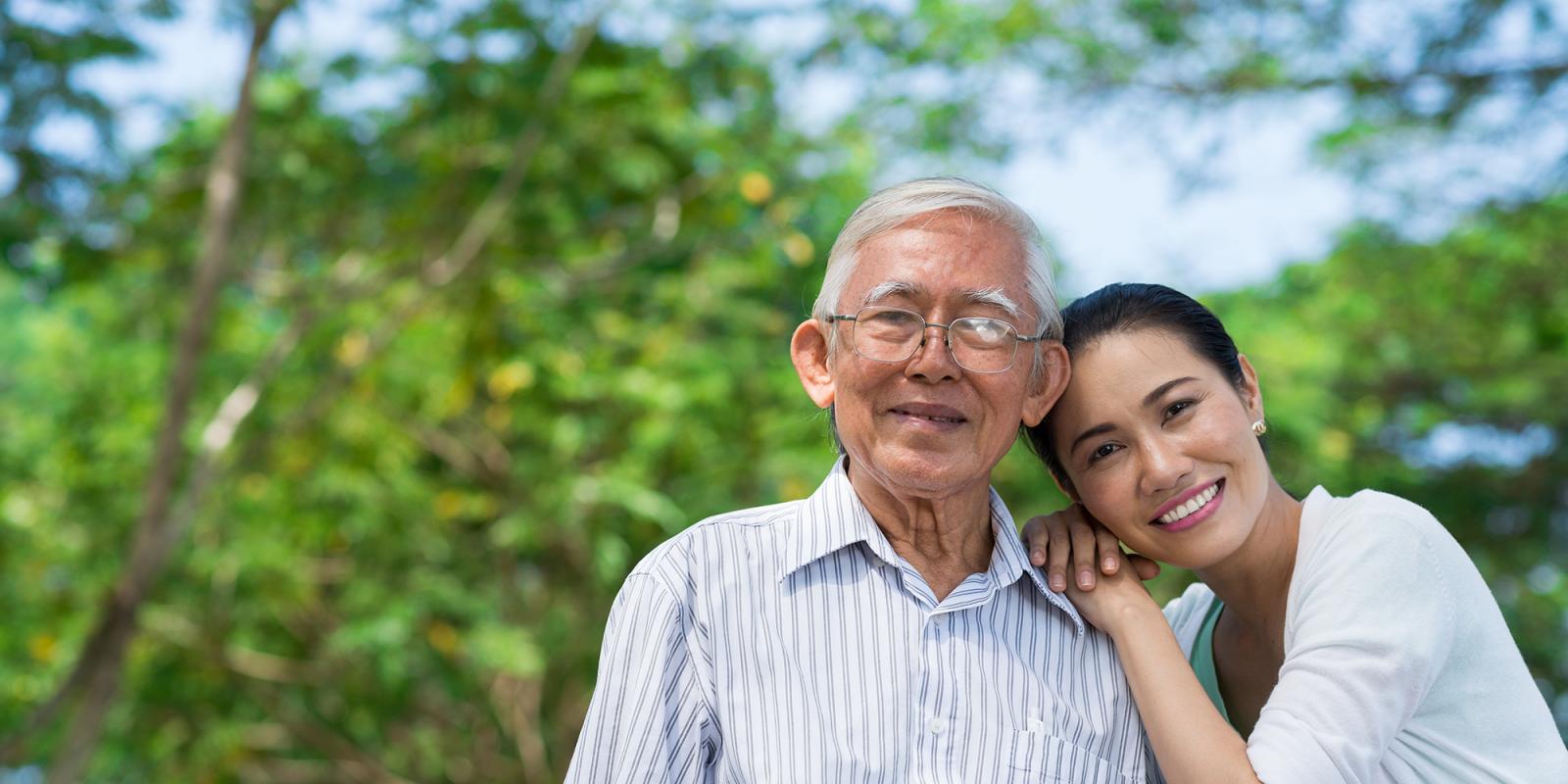Editor’s Note: This article represents the sixth in a series by the Diverse Elders Coalition (DEC) published in Generations Today. Articles are connected to ASA-hosted webinars; see end of article to register. The series of articles by the DEC highlights research from The Caregiving Initiative, a multiyear research project funded by The John A. Hartford Foundation.
The rise of hate crimes against Asian American and Pacific Islander (AAPI) communities during the pandemic has significantly impacted the caregiving role. Across the nation, AAPI caregivers are living with the fear of being attacked, while maintaining their daily caregiving tasks, which may lead to social isolation and other poor mental health outcomes like increased anxiety and depression.
Additionally, the fear of hate crimes may result in behavioral changes among AAPI caregivers such as limiting outside exposure, which may lead to a reduction of health and social services use. It is crucial that there is outreach in AAPI communities to ensure their security and to provide assistance and resources.
Who Are AAPI Caregivers?
As there are more than 40 ethnic groups within the AAPI category, demographics and characteristics often vary between ethnic groups. Chinese American caregivers in our survey ranged from age 50 to age 70, which aligns with previous research on AAPI caregivers. As was expected, more than half of these caregivers were female and lived with their care recipients, due to cultural values and traditions that greatly influence AAPI caregivers. Most AAPI caregivers also are first and second generation immigrants.
Cultural Impacts of Caregiving
As many AAPI older adults and caregivers either have immigrated to the United States or are first-generation born, they may be influenced by cultural values and traditions that have long-lasting impacts on the caregiving role. Among many AAPI cultures, filial piety is of great importance, defined as obedience, devotion, care and respect toward one’s elders, including parents and older family members. Filial piety partially explains the high rates of caregivers observed among AAPI communities, as caregiving is a part of the culture.
‘AAPI caregivers are usually more reluctant to use respite services, in-home caregiver services and long-term care facilities.’
Some AAPI communities also are influenced by familism, which is the belief that the needs of the family hold greater weight than the needs of the individual. For many AAPI caregivers, this means the role involves a long-lasting commitment.
As a result of the cultural commitment to care, AAPI caregivers are usually more reluctant to use respite services, in-home caregiver services and long-term care facilities, taking on the caregiving responsibility alone. More than a fourth of Chinese American caregivers reported having no family or friends to help support them and paying for expenses related to the care recipient.
Although AAPI caregivers have shown cultural resiliency, cultural values such as filial piety and familism also may have negative effects. AAPI caregivers may be less likely to have conversations about the future and end-of-life care services or to address conditions such as Alzheimer’s disease and related dementias, out of respect for their elders. This may lead to negative relationships and increased mental health strain among AAPI caregivers.
Mental Health Assistance and COVID-19 Implications
The duality of cultural values affecting the caregiving role and the increased fear of hate crimes due to the pandemic increases mental health strains on many AAPI caregivers, who may be conflicted between their own health and safety and the caregiving tasks that require exposure to the outside world. This conflict may also worsen preexisting negative health outcomes such as isolation. In our survey, which was conducted pre-pandemic, a fifth of Chinese American caregivers reported being more isolated and having increased mental health strain due to caregiving.
Along with the increase in hate crimes among AAPI communities, the COVID-19 pandemic has also highlighted the need for providers to account for linguistic barriers that make it difficult for many limited-English-proficient AAPI older adults and caregivers to access critical mental health services during this time. Telehealth resources should expand language capacities to ensure outreach to AAPI caregivers and older adults who may be living in fear of going outside. National, state and local programs should emphasize in-language outreach and interventions in AAPI communities to help mitigate fear of hate crimes, ensuring caregivers and their older loved ones feel safe aging in the community.
Best Practices to Support AAPI (Chinese American) Caregivers
What follows are some best practices from DEC’s cultural competency training curriculum to better support AAPI caregivers:
- Develop in-language online resources, and educational/training materials around virtual services;
- Utilize culturally responsive, trained interpreters when speaking to AAPI caregivers both in person and virtually;
- Expand Telehealth language capacities to account for limited-English proficient AAPI caregivers and/or older adults; and
- Partner with existing local and state organizations with existing language capacities such as BPSOS, and NAPCA to improve outreach in AAPI communities.
Attend a DEC training on the needs of diverse caregivers: Register for our upcoming webinar on September 29, 2021, “Caring for Those Who Care: Meeting the Needs of Asian American and Pacific Islander Caregivers.” Or Download the DEC’s Resources for Providers: Meeting the Needs of Diverse Family Caregivers Toolkit. This toolkit offers topline information on what providers need to know, and key pieces from our comprehensive training curriculum, Caring For Those Who Care: Meeting the Needs of Diverse Family Caregivers.
Heather Chun, MSW, is senior director of aging and caregiver programs at the National Asian Pacific Center on Aging (NAPCA) in Seattle. Ocean Le, MS, is program coordinator at the Diverse Elders Coalition in New York City.













